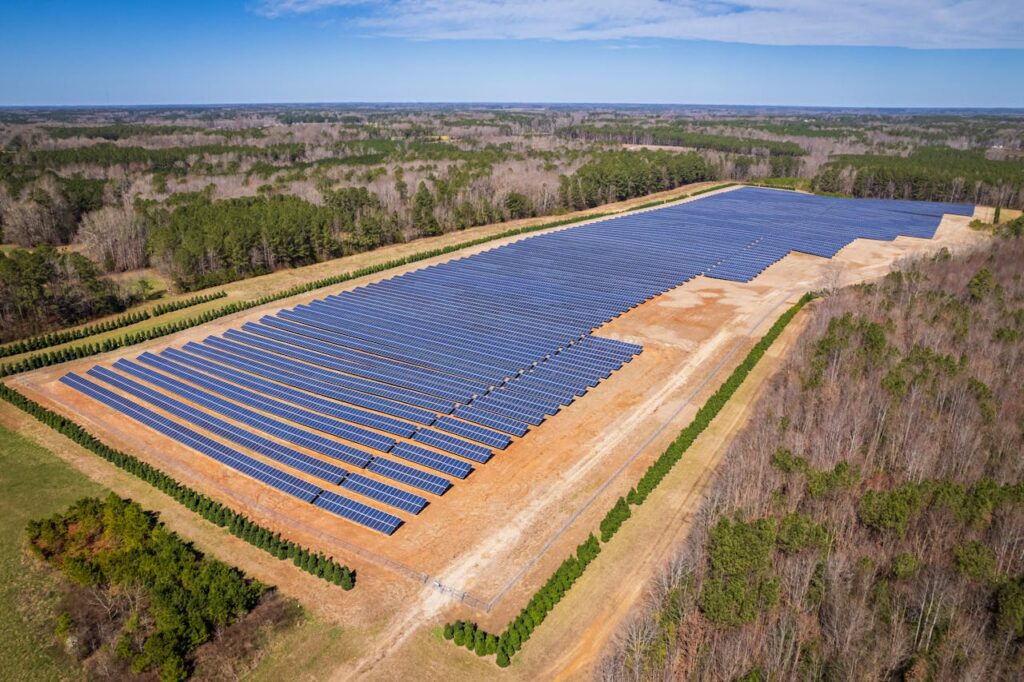At A Glance...
- The UKs sunny weather in 2025 set a new record for maximum solar generation, reaching 12.2GW between 12:30 and 13:00 on the 1st of April.
- Solar panels are designed to work most efficiently at a standard testing temperature of around 25 degrees Celsius.
As the UK’s weather is set to soar in the coming week, one question that has been brought to light is how well solar panels perform during these warmer spells. While it’s easy to assume that hotter weather would boost solar power production, the reality is a little more complex.
How Does Sunny Weather Impact Solar Panels?
According to the BBC, March 2025 was the sunniest on record, with an impressive 185.8 hours of sunshine throughout the month.
This sunny weather continued into April, and on the first day of the month, the UK set a new record for maximum solar generation, reaching 12.2GW between 12:30 and 13:00.
Based on the above statistics, we can see how sunny weather has significantly impacted UK solar energy. When it comes to converting sunlight into electricity, clear and sunny conditions are ideal. However, while sunshine is critical, high temperatures can actually affect solar panels negatively.
Solar panels are designed to work most efficiently at a standard testing temperature of around 25 degrees Celsius. As temperatures rise beyond this point, the solar panels efficiency can begin to decline. Essentially, while solar panels work best under bright sunlight, higher temperatures reduce their ability to generate electricity effectively.
How High Temperatures Affect Solar Panel Performance
Many people think solar power works perfectly in hotter conditions, but that’s not entirely true. In fact, when temperatures soar, it can become too hot for solar panels. As the temperature rises, the material properties inside solar cells shift, causing a slight drop in voltage and, ultimately, a reduction in overall power output.
Solar panel efficiency measures typically show that for every degree Celsius above the ideal 25°C, efficiency can drop by around 0.2% to 0.5%. Although this sounds small, over large solar arrays and during extended periods of extreme heat, the losses can add up and impact electrical generation significantly.
For example, although the Saudi Arabian desert is abundant in sunlight, solar panels there are engineered differently to withstand high temperatures and maintain better performance compared to standard panels used in milder climates like the UK.

Managing Solar Panel Efficiency in Hot Weather
Fortunately, there are ways to minimise the effects of higher temperatures. Solar panel installers often advise mounting panels slightly above rooftops to allow airflow underneath, which helps cool the panels. Some newer technologies also use materials and coatings designed to reduce heat absorption, boosting solar panels efficiency even during heatwaves.
Moreover, maintaining your solar panels—keeping them clean, clear of debris, and properly ventilated—is essential to getting the best results, especially as part of a larger energy system designed for maximum resilience.
We Collect & Recycle Solar Panels UK-Wide
At PV Recycling, we understand the full lifecycle of solar panels, inverters and batteries. Whether your equipment is retired due to age, damage, or decreased performance, our team collects and responsibly recycles solar panels for businesses across the UK.
As part of the growing renewable energy sector, ensuring that solar panel waste is properly handled is just as important as maximising electrical generation during their operational life.

